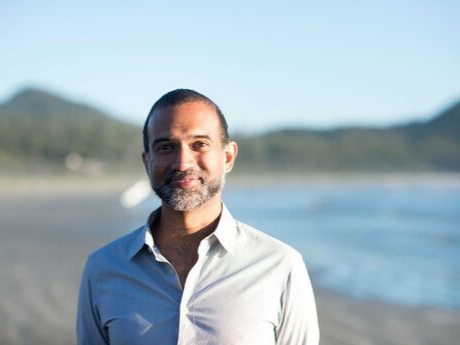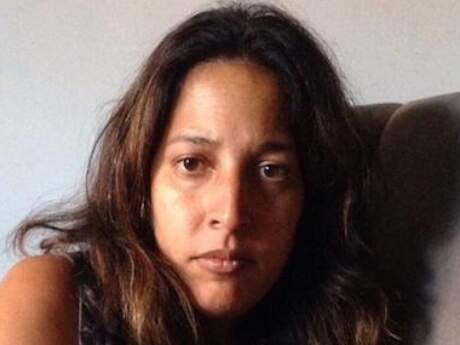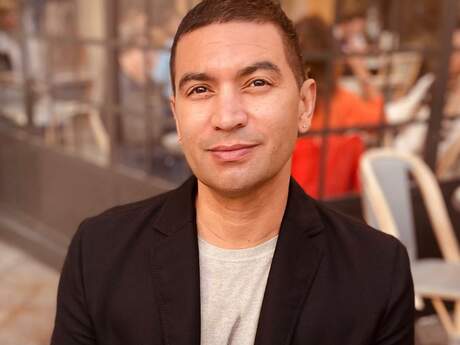Q & A: American Poetry
Q & A American Poetry: Srikanth Reddy

In what ways might you consider yourself an American poet?
Being an American poet is, for me, an accident of history – something I really have no say in, like being a poet of Indian descent, or being a poet from an upper-middle class background, or being a balding poet, all of which, incidentally, and accidentally, I am. So being an American poet is, I feel, nothing to be proud of, and nothing to be ashamed of, either. It's simply a set of ground conditions in which I find myself working. And along with those ground conditions come all sorts of formal, generic, stylistic, and temperamental biases – but I think it's one's job to write against the grain of those conditions. So in a way, I think of myself as an American poet because – like so many other American poets – I'm trying to write my way out of being read as any sort of stereotypically 'American' poet.
Do you believe there is anything specifically American about American poetry past and present? Is there American poetry in the sense that there is said to be American painting or American film?
It's hard to put one's finger on any specific feature that one could say characterizes American poetry per se, especially when one thinks about the question historically. I suppose there's a kind of 'ambition' in American writers' claims for poetry, beginning of course with Whitman – but present, simultaneously, in Dickinson's examinations of sovereignty and eternity – and running through the magisterial projects of Pound and Stein and Olson and Merrill and Ashbery and all kinds of people in between. That's not to say that a writer like Paul Celan or any number of other poets from other countries aren't ambitious – rather, I think that a certain variety of 'ambition' is just the common element in which American poets inevitably must swim from beginning to end.
Can the same be said of American painting or film? I'm not sure. Certainly Italian film like that of Fellini or Picasso's paintings seem as ambitious as anything that's come out of America in those media. So maybe the sort of vague notion of ambition I'm talking about is a distinguishing feature of American poetics as opposed to the other arts in this country. But I wouldn't bet my life on it.
What role do historical and geographical factors play in American poetry and in your work specifically? What other aspects of your life (for instance: gender, sexual preference, class, ethnicity, religious beliefs) relate to your sense of being a poet in America?
For a while I tried to deny the influence of historical and geographical factors on my writing. I felt that it would be fatalistic to simply accept the role of being an "Indian-American" poet without giving my imagination free rein to assume all sorts of different identities in my poems. But I've come to feel that certain aspects of being of Indian descent and an American citizen may actually open up the possibility of trying out different identities in ways that wouldn't otherwise be available to me. The classic rhetorical formulation of American poetry, Whitman's "I am this, I am that," is a version of Krishna's theophanic revelation in the Bhagavad Gita, in which the divinity says to his disciple "I am this, I am that" in precisely the same fashion. So being an American poet, and being a poet of Indian heritage, doesn't necessarily shut down one's possibilities of being in the world. It may actually multiply those possibilities far beyond what one could have ever imagined in the absence of history and geography.
Is there something formally distinctive about American poetry?
No, I don't think there's anything formally distinctive about American poetry. In fact, if anything, the most distinctive feature of American poetry lies in its radical diversity. Traditional European forms like the sonnet, imported Asian forms like the haiku and the ghazal, experimental forms like projective writing or chance operations – the field of formal options available to an American poet writing today is truly vast to the point of bewilderment.
What significance does popular culture possess in your sense of American poetry?
I think popular culture has a pretty significant presence in a lot of American poetry, especially the poems written by younger writers. One reason for this is that popular culture might be the last lingua franca for readers of the art today. Certainly more readers will recognize a reference to The Sopranos than will register a citation of Spenser or somebody else who's been dead a long time. That's okay, I guess -- it's a new common fund of cultural reference and all that – but I do feel a fuddy-duddy sadness at the loss of older sorts of music from Chaucer and Shakespeare and Milton and whatnot. Still, popular culture does bring in new kinds of music, which is to the good of the art.
When you consider your own "tradition," do you think of American poets, non- American poets? Which historic poets do you consider most responsible for generating distinctly American poetics?
When I think of my own personal pantheon of writers, I do think of many American poets – Stevens, Eliot, Ashbery – but the funny thing is that each of these writers was deeply influenced by the poetry of a foreign culture. (In Eliot's case, the influence came from many foreign cultures). But I also think of poets from countries abroad, like Keats and Dante, and poems from other traditions, like The Mahabharata, which looms larger and larger in my mind these days. So I like to think of myself as a 'world poet,' ultimately – and I'd have to add that this isn't anything special about me, as it seems to me that the majority of poets working today are world writers in some sense, and that many writers from the past (like Eliot, for example) fall into this category as well.
What are your predictions for American poetry in the next century?
I'm no Nostradamus, but I'd imagine that American poetry will more and more become continuous with something like a "world poetry" in the next century. At least, I hope that's the case. The growing interest in translation in this country, and the increasing skepticism regarding nationalism, seem to me augurs of a sort of globalization in the field of poetry and poetics. Of course, there may occur some problems analogous with our current difficulties with economic globalization – the erasure of regional identities, etcetera – which we'll have to be aware of and sensitive towards. But on the whole I think this will be a good thing. The de-Americanization of American poetry!
Published 2010.


